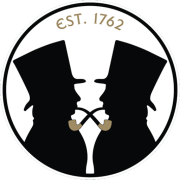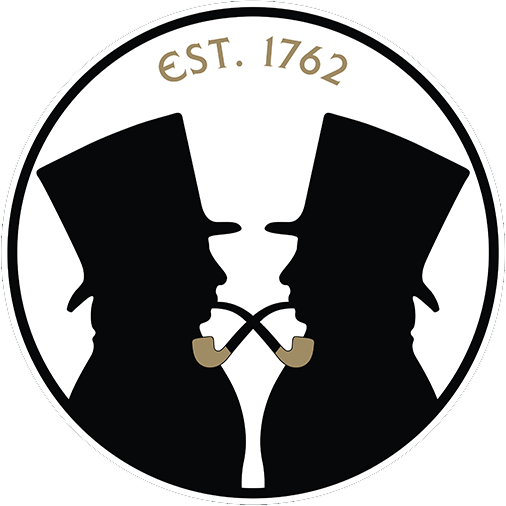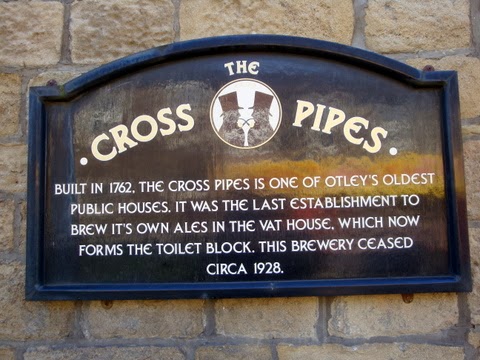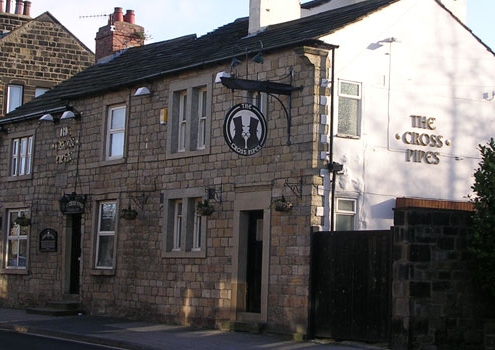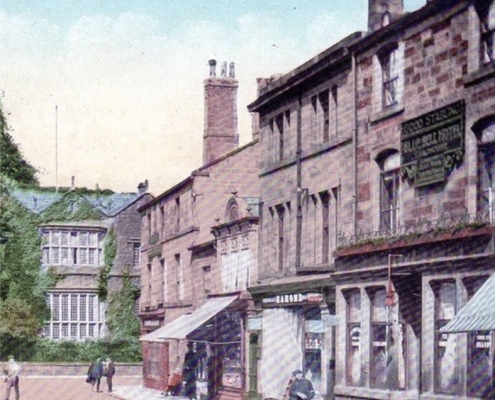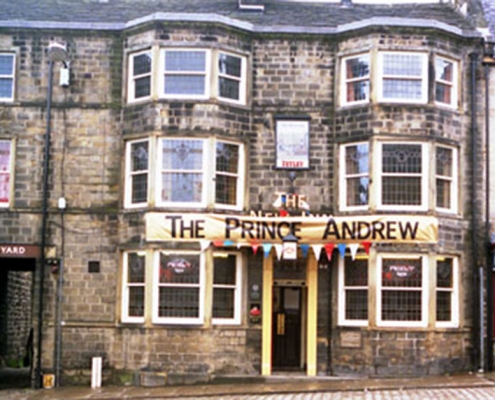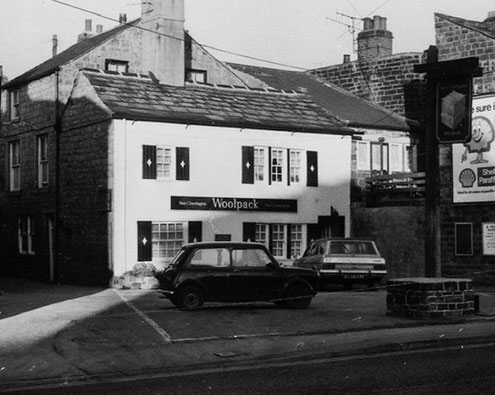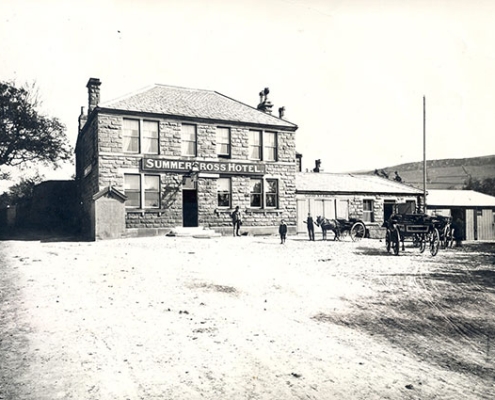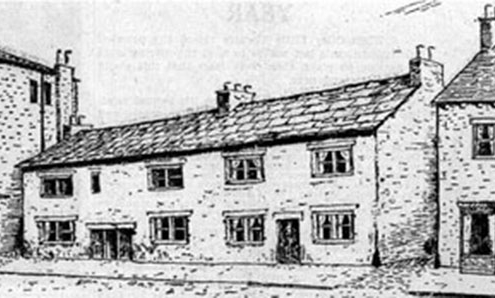CROSS PIPES HISTORY
A Historic Inn with Ghostly Echoes
Tucked away on Westgate in the historic market town of Otley, The Cross Pipes has stood as a silent witness to more than 260 years of local history. Built circa 1762, this venerable structure began life as two cottages and an inn, strategically positioned to serve travellers, workers, and townsfolk in an era when Otley was expanding rapidly during the early stages of the Industrial Revolution.
The building was constructed in two distinct blocks, with the central cottage later incorporated into the inn itself. The eastern cottage was eventually demolished, but the remnants of the original layout could still be traced in the stonework and structure. At the side of the inn was a stone archway, leading to a brewhouse, malt house, and stables—a full complement of facilities for a self-contained public house in the 18th and 19th centuries. At one point, The Cross Pipes even had its own well, indicating the scale of its original operations.
It is of particular historical interest that The Cross Pipes was the last public house in Otley to brew its own beer on-site, marking the end of an important chapter in the town’s brewing heritage.
Landlords and Local Life
In the 19th century, the inn was run by notable figures such as George Cheadle, listed as publican in both the 1822 and 1829 census records, and later by Mary Cheadle in 1834 and 1837—a rare example of a female licensee at the time, which hints at the role of women in local business long before it was common.
During World War I, the pub remained in operation under George Arthur Robinson and his wife, Muriel Robinson, who—like many in Otley—adapted to the wartime economy. While running the pub, both were employed at Payne & Sons Atlas Works, which had been converted from printing machinery to munition production. George worked as a munitions labourer, and Muriel served as a forewoman, a remarkable dual role that showcased the resilience and adaptability of working-class pub owners in wartime Britain.
Strange Happenings Through the Years
Beyond its rich historical record, The Cross Pipes has long been associated with unexplained events and ghostly phenomena, giving rise to its reputation as one of Otley’s most haunted pubs.
The earliest accounts of strange behaviour date back decades, but it was in 1985, when Stuart and Sue Rothera became tenants, that more detailed stories began to surface. Shortly after taking over, the couple experienced sudden, inexplicable movements of objects, including a stack of boxes in the kitchen that collapsed without warning, despite having remained undisturbed all day.
Even more unnerving was an event witnessed by their daughter Haley and her fiancé Phil. While the pub was closed one afternoon, Phil threw three darts into the board before turning to play pool. Without warning, the darts sprang out of the board—one after the other—seemingly by an unseen hand. When he replaced them, they flew out again.
Other stories include a bathroom door mysteriously locking itself from the inside when no one was present, and the telephone handset repeatedly dislodging itself from its cradle, as if moved by invisible forces. One landlord even parked his car on the steep incline beside the inn, only to watch it roll into the road on its own—despite the fact that the handbrake was engaged and the brakes were later found to be fully operational.
A Heritage at Risk
In June 2022, The Cross Pipes entered a new chapter when landlord Ian Wellington purchased the freehold from Admiral Taverns, hoping to return the pub to its roots as an independent Free House. Yet, by May 2023, the pub remained closed, its doors shut, and its fate uncertain.
Determined not to lose such a historic landmark, a coalition of local groups—including Otley Pub Club, Bradford CAMRA, Campaign for Pubs, Otley BID, and local MP Alex Sobel—came together to preserve and protect the building. Their efforts are focused on not only reviving the pub for future generations but also recognising its Architectural and Historical Significance, potentially through official heritage listing.
Plans proposed by Otley Pub Club include a full refurbishment and the addition of guest rooms, ensuring The Cross Pipes can once again become a hub of community life—and perhaps continue hosting a few spectral guests along the way.
From its 18th-century origins to its whispered ghost stories and community-driven revival, The Cross Pipes is more than just an old inn—it is a living archive of Otley’s past, where history and mystery walk hand-in-hand.
Information curtesy of Otley Pub Club
